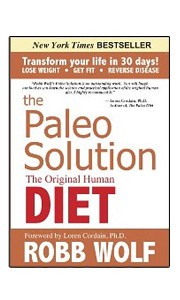Why Does Heart Disease Really Occur?
There’s a storm coming, and it’s raining secrets and lies.
Readers Summary
- What is medicine really good and bad at?
- Why was Framingham heart study important?
- What did Framingham really say?
- Why do you need to know if bias exists in the research and how it could affect opinions?
- A video to capture your attention
Let me begin by saying, I think western medicine is ideal for acute diseases. I know this is a dogmatic statement to lead with, but I believe this to be true. And those diseases are the ones that shortened our lifespans most in the first half of the 20th century. Most people I talk with always want to know why I think medicine has missed the boat with respect to chronic diseases? I have thought long and hard about this one and I think I have arrived at my reason. Healthcare, up until the 1940′s, was done anecdotally and by empiric observation. In the 1940′s, the government saw some statistics that showed close to 40{a7b724a0454d92c70890dedf5ec22a026af4df067c7b55aa6009b4d34d5da3c6} of the deaths in the US were caused by heart disease or stroke. It also appeared that the numbers were accelerating and not slowing down. The real reason they became interested is that no one knew why this was happening. So they decided to study this problem with a long term observational population study that began in 1948. That study was the Framingham Heart study. The bible has the book of Genesis, and physics has Einstein’s theory of relativity and Framingham is medicine’s raison d’etre.
They enrolled 5209 people in this Northeastern City and began to follow them and their generations for fifty years. None of these folks had heart disease at the studies origin. The study is still going on today studying the succeeding generations. This study revealed some major trends in disease patterns that were quite helpful in many ways for us as a nation. For example, this is where we found out obesity and smoking and high blood pressure mattered to our health. Framingham basically ushered in the concept of “disease risk medicine”. It was the first ever attempt at looking at how to affect chronic diseases in humans. It made sense to follow a population over time to see what may influence diseases. The big problem with Framingham was in how some of the data was interpreted. Population data collection is good public health policy, but it can be deadly for individual patient decision making when it is totally not understood in the context of your own health. Framingham data was reported to say that heart disease correlated with high cholesterol levels (LDL) best. At specific times the researchers released information from the trial based upon their interpretations. At 16 years in those who developed heart disease only showed an 11{a7b724a0454d92c70890dedf5ec22a026af4df067c7b55aa6009b4d34d5da3c6} increase in serum cholesterol levels. Yet researchers used the words, “striking increase” to describe the effect. In 1987, the 30 year data was released on cardiovascular disease and this time they told us that Cardiovascular mortality correlated with higher cholesterol in patients below 50 years old, but after this age they reported no relationship with cholesterol and CV mortality. Stop and think about that. Do patients get treated this way today? Why is everyone placed upon a statin, you may ask, for a cholesterol over 200?
Conventional wisdom is the correct answer because everyone knows fat has to cause heart disease! (Not)
Upset yet? Well, then chew on this. For those aged over 50 with a decreasing level of cholesterol as they age, they actually had an increase in CV mortality and all causes of mortality in the entire study! So if you are over 50 and your cholesterol is lowered (statin anyone) Framingham says you will die sooner from all causes! Do you think that published data is practiced in cardiology today? What is the opinion you get from your cardiologist or PCP today? Why? Because the opinions drawn from this study were not made upon what they found, but what they believed to be true in the 1980s about heart disease. Read this quote from the update, “There is a direct association between falling cholesterol over the first 14 years and mortality over the following 18 years…” Wow! The data showed that for every 1 mg/dl drop in cholesterol per year, there was a 14{a7b724a0454d92c70890dedf5ec22a026af4df067c7b55aa6009b4d34d5da3c6} increase in the rise of overall mortality. This should make you wonder why you ever stopped eating meat, bacon and eggs for one minute if this is true! I went back and read the data and reviews of the data multiple times. What I found is that what they said about what the data said was entirely opposite! Moreover, the data clearly supports you eating a high fat and protein diet to live longer from heart disease and all other causes of death. More blogs will cover that area soon. The best diet in my view for a human, based upon the current science, is a Paleolithic diet that advocates grass fed meats, wild caught fish, extremely low omega six fats, very low levels of all grains, and very low levels of fructose. Another point about Framingham; this data continued to be followed until 1998 for the original study group and stayed consistent! Do you think the USDA guidelines tell America that message today? Pretty large disconnect I’d say.
So I completely accept that doing studies like Framingham are great for us as a nation to gain insight into trends on health and disease. But the real problem with relying on this data is to understand what the trials really found. You can’t leave the interpretation of the data up to groups who have a vested or financial interest in the outcome. Dr. Grundy, the lead investigator in the trial, was found to make millions off his opinions of what Framingham said to him and his friends in the pharmaceutical industry. He also controlled what got published in the journal, Circulation, at that time. How convenient!
This is why evidence based medicine today is really a house of cards in my opinion. You must ask yourself this: why is this opinion to take a statin the right thing to do for me? Could it be the wrong thing for me as well? It becomes question number one to me every time a new guideline is released for anything in medicine. Sadly, if doctors do not conform to these new guidelines they often do not get paid for services rendered. Often, patients do not understand the conundrum this places us physicians in. Guess who gets screwed by this paradigm? You do! Evidence based medicine is based upon assumptions that are not correct in many cases. The best way to see that if you’re a patient is to follow their recommendations and see if they work at all by following your own labs and data. I have done this myself now for the last 5 years. I call this my QSelf assessment. The Q stands for Quantified Self. I draw quarterly labs on myself every year for the last 4 years. If my labs don’t support what I am doing based upon biochemistry and physiology I change them immediately until I get the desired result or outcome. I no longer rely on the conventional wisdom I was taught. I do this to take full advantage of the Hawthorne effect to better my own health. This is precisely how I get patients to change too. This is how I lost my weight and dealt with my torn knee meniscus. I made the decisions to treat based upon my own customized data points. It was the only way I could gain control over my medical destiny and remove the helplessness I felt when I became a patient.
One last point about Framingham that I learned from researching it. When I was a neurosurgical resident, I used to always tell my rotating medical students and residents that you should never avoid someone or something that you perceive to be substandard or wrong. I learned some of the greatest things about neurosurgery from those who had the least ability or “street smarts” on the surgical floors and in the operating rooms. That insight I had back then, was that, if I remained self aware of their liabilities I would never fall prey to it. The lessons I experienced, both good and bad, could then be brought to my attention so that I may learn something from it. That perception has served me well in medicine I believe. This is precisely the optic that I view the Framingham heart study from.
So if you did not have health insurance from 1980 on and had heart disease this actually was likely good news for your health. If you had health insurance and heart disease, that may have been some insurance you had that you wished you’d never got. Click here to view cardiologist William Davis’ podcast.
Medicine really missed the great points that were revealed in Framingham. Good intentions don’t equal good health all the time. Context is critical to understanding your longevity.
This is Dr. Diamond is a neuroscientist from a University of South Florida. Watch this video and tell me what you think in the comments. This is why I do what I do here. This needs to be debunked because if you believe the lipid hypothesis you likely will never make the jump to the diet that will save your life from disease. That diet is the Paleolithic Diet. Medicine based upon biochemistry not opinions. Seems like some of things we believe true just might not be. I’ll let you be the judge for your own health.
Search Youtube for the video from University of South Florida. The name is called “How Bad Science and Big Business Created the Obesity Epidemic.” I could not link it here for some reason. I promise it’s worth the time.
Your Shopping List for this Post
 |
 |
| U.S. Wellness Meats | The Paleo Solution: The Original Human Diet |